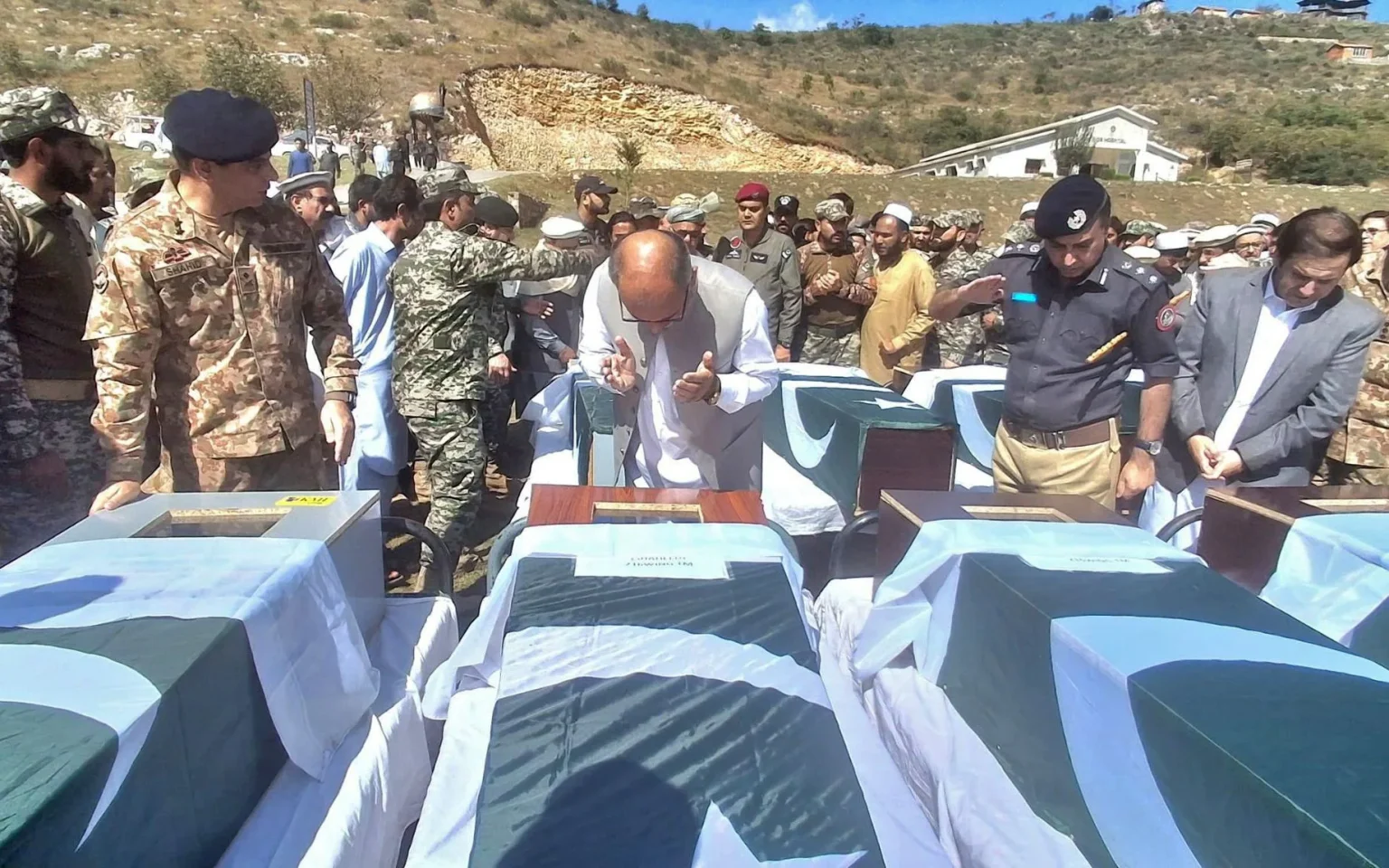Tensions between South Asia’s two nuclear-armed neighbours have reignited after Pakistan warned that the “chances of war with India are real,” following a deadly ambush on a military convoy that killed 11 soldiers in the country’s volatile northwest.
According to officials in Islamabad, the attack occurred in Orakzai district on Wednesday when gunmen linked to the Pakistan Taliban (Tehreek-e-Taliban Pakistan, TTP) opened fire on a convoy carrying out an intelligence operation. Among the dead were two senior officers. Nineteen militants were also killed in a retaliatory strike.
Pakistan’s Defence Minister, Khawaja Asif, blamed India for allegedly backing militant groups responsible for the assault. Speaking to Samaa TV, Asif said:
“There is a real threat of armed confrontation, and Pakistan is keeping its guard. I do not seek escalation, but the risks are undeniable. If it comes to war, God willing, we will achieve a better result than before.”
He accused India of long-standing interference through support for separatists in Balochistan and militants operating across Pakistan’s borders—allegations that New Delhi has repeatedly denied.
Read Also: Eight killed in days of violent protests in Pakistani-administered Kashmir
The minister’s remarks have stirred fears of a renewed conflict after months of uneasy calm following May’s four-day exchange of air and missile strikes, which pushed both nations to the brink of all-out war.
During Operation Sindoor 1.0, launched by India in response to a terror attack in Kashmir’s Pahalgam region, New Delhi claimed to have destroyed nine militant camps inside Pakistan. Islamabad countered that 31 civilians were killed, accusing India of targeting homes, mosques, and power infrastructure.
The clashes ended only after then–U.S. President Donald Trump announced a “full and immediate ceasefire” on May 10, a move that briefly eased tensions. Pakistan later nominated Trump for the Nobel Peace Prize, crediting him with averting a potential nuclear catastrophe.
Now, relations are once again on edge. Pakistan’s military command met this week in Rawalpindi, warning India that any “imaginary new normal” it seeks to impose in the region “will be met with a new normal of swift retributive response.”
Meanwhile, Indian generals have adopted a tougher tone. Army chief General Upendra Dwivedi recently warned Pakistan to “end state-sponsored terrorism or risk losing its place on the map.” Defence Minister Rajnath Singh echoed the sentiment, saying any aggression in the disputed Sir Creek region “will change both history and geography.”
Analysts say both countries are on high alert, with nationalist fervour rising and diplomatic communication at a standstill. Pakistan’s newly signed mutual defence pact with Saudi Arabia, which treats an attack on one as an attack on both, has further heightened regional uncertainty.
For now, the ceasefire along the Line of Control in Kashmir remains intact. Yet, with both sides trading threats and reinforcing border deployments, fears are mounting that South Asia could once again be inching toward open war.



